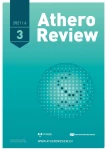-
Medical journals
- Career
Impact of the COVID-19 pandemic on cardiovascular diseases and risk-factors
Authors: Jan Václavík
Authors‘ workplace: Interní a kardiologická klinika FN Ostrava a LF OSU, Ostrava
Published in: AtheroRev 2021; 6(3): 123-126
Category: Reviews
Overview
During the COVID-19 epidemic, there was a temporary significant reduction in health care. The number of patients admitted for acute coronary syndromes and acute heart failure decreased, and there was an increase in out-of-hospital cases of circulatory arrest and out-of-hospital mortality, causing more than a 5% increase in cardiovascular mortality. In all areas affected by the pandemic the number of clinical and laboratory tests has decreased, which led to deterioration in the control of cardiovascular risk factors: the mean values of blood pressure, cholesterol and glycated hemoglobin have increased. Now that the major waves of the epidemic are (perhaps already) fading, we need to focus on all modifiable risk factors in our patients, including hypertension, dyslipidemia and diabetes, and aggressively tackle all these factors to minimize the long-term effects of the epidemic on our patients’ health. Increasing the use of fixed-dose combinations of antihypertensive drugs as well as fixed-dose combinations of the antihypertensive and hypolipidemic drugs can, thanks to much better patient adherence to treatment, significantly improve the control of hypertension and dyslipidemia in our patients.
Keywords:
hypertension – cardiovascular disease – diabetes mellitus – dyslipidemia – COVID-19 – coronavirus – fixed-combination drug
Sources
- Ministerstvo zdravotnictví České republiky. COVID-19 – onemocnění aktuálně. Dostupné z WWW: <https://onemocneni-aktualne.mzcr.cz/covid-19>.
- Anderson KE, Mcginty EE, Presskreischer R et al. Reports of Forgone Medical Care among US Adults during the Initial Phase of the COVID-19 Pandemic. JAMA Netw Open 2021; 4(1): 1–11. Dostupné z DOI: <http://dx.doi.org/10.1001/jamanetworkopen.2020.34882>.
- Mafham MM, Spata E, Goldacre R et al. COVID-19 pandemic and admission rates for and management of acute coronary syndromes in England. Lancet 2020; 396(10248): 381–389. Dostupné z DOI: <http://dx.doi.org/10.1016/S0140–6736(20)31356–8>.
- Cannatà A, Bromage DI, Mcdonagh TA. The collateral cardiovascular damage of COVID-19: Only history will reveal the depth of the iceberg. Eur Heart J 2021; 42(15): 1524–1527. Dostupné z DOI: <http://dx.doi.org/10.1093/eurheartj/ehab097>.
- The corona-virus disease 2019 pandemic compromised routine care for hypertension: a survey conducted among excellence centers of the European Society of Hypertension. J Hypertens 2021; 39(1): 190–195. Dostupné z DOI: <http://dx.doi.org/10.1097/HJH.0000000000002703>.
- Zhang S, Zhou X, Chen Y et al. Changes in Home Blood Pressure Monitored Among Elderly Patients With Hypertension During the COVID-19 Outbreak: A Longitudinal Study in China Leveraging a Smartphone-Based Application. Circ Cardiovasc Qual Outcomes 2021; 14(5): 605–612. Dostupné z DOI: <http://dx.doi.org/10.1161/circoutcomes.120.007098>.
- Gumuser ED, Haidermota S, Finneran P et al. Trends in cholesterol testing during the COVID-19 pandemic. Am J Prev Cardiol 2021; 6 : 100152. Dostupné z DOI: <http://dx.doi.org/10.1016/j.ajpc.2021.100152>.
- Sharma A, Greene DN, Chambliss AB et al. The effect of the Covid-19 shutdown on glycemic testing and control. Clin Chim Acta 2021; 519 : 148–152. Dostupné z DOI: <http://dx.doi.org/10.1016/j.cca.2021.04.018>.
- Munekawa C, Hosomi Y, Hashimoto Y et al. Effect of coronavirus disease 2019 pandemic on the lifestyle and glycemic control in patients with type 2 diabetes: A cross-section and retrospective cohort study. Endocr J 2021; 68(2): 201–210. Dostupné z DOI: <http://dx.doi.org/10.1507/endocrj.EJ20–0426>.
- Pearson LN, Johnson SA, Greene DN et al. Side-Effects of COVID-19 on Patient Care: An INR Story. J Appl Lab Med 2021; 6(4): 953–961. Dostupné z DOI: <http://dx.doi.org/10.1093/jalm/jfab025>.
- Bangalore S, Kamalakkannan G, Parkar S et al. Fixed-dose combinations improve medication compliance: a meta-analysis. Am J Med 2007; 120(8): 713–719. Dostupné z DOI: <http://dx.doi.org/10.1016/j.amjmed.2006.08.033>.
- Williams B, Mancia G, Spiering W et al. 2018 ESC/ESH Guidelines for Themanagement of Arterial Hypertension. Eur Heart J 2018; 39(33): 3021–3104. Dostupné z DOI: <http://dx.doi.org/10.1093/eurheartj/ehy339>. Erratum in Corrigendum to: 2018 ESC/ESH Guidelines for the management of arterial hypertension. Eur Heart J 2019; 40(5): 475. Dostupné z DOI: <http://dx.doi.org/10.1093/eurheartj/ehy686>.
- Thom S, Poulter N, Field J et al. Effects of a Fixed-Dose Combination Strategy on Adherence and Risk Factors in Patients With or at High Risk of CVD. JAMA 2013; 310(9): 918. Dostupné z DOI: <http://dx.doi.org/10.1001/jama.2013.277064>.
Labels
Angiology Diabetology Internal medicine Cardiology General practitioner for adults
Article was published inAthero Review

2021 Issue 3-
All articles in this issue
- Editorialy
- Impact of the COVID-19 pandemic on cardiovascular diseases and risk-factors
- Statins and COVID-19: Are they each other indifferent?
- Combination of statin and ezetimibe: most often in only one pill and for more patients
- Axis of athero-evil: liver – vessel – heart
- NAFLD from a hepatologist‘s point of view
- Low HDL-cholesterol: How it actually is?
- Comparison of profile and treatment of patients with uncontrolled arterial hypertension and/or dyslipidemia in specialist care and primary care in the Czech Republic: comparison of the results of the LipitenCliDec 1 and LipitenCliDec 2 studies
- Familial hypercholesterolemia: news
- Genetics of familial hypercholesterolemia: updated criteria for LDLR gene variant interpretation
- Research on remarkable articles from international literature
- Šobrův den 2021: XXXV. konference o hyperlipoproteinemiích tentokrát hybridní
- Athero Review
- Journal archive
- Current issue
- Online only
- About the journal
Most read in this issue- Low HDL-cholesterol: How it actually is?
- Familial hypercholesterolemia: news
- Combination of statin and ezetimibe: most often in only one pill and for more patients
- Genetics of familial hypercholesterolemia: updated criteria for LDLR gene variant interpretation
Login#ADS_BOTTOM_SCRIPTS#Forgotten passwordEnter the email address that you registered with. We will send you instructions on how to set a new password.
- Career

